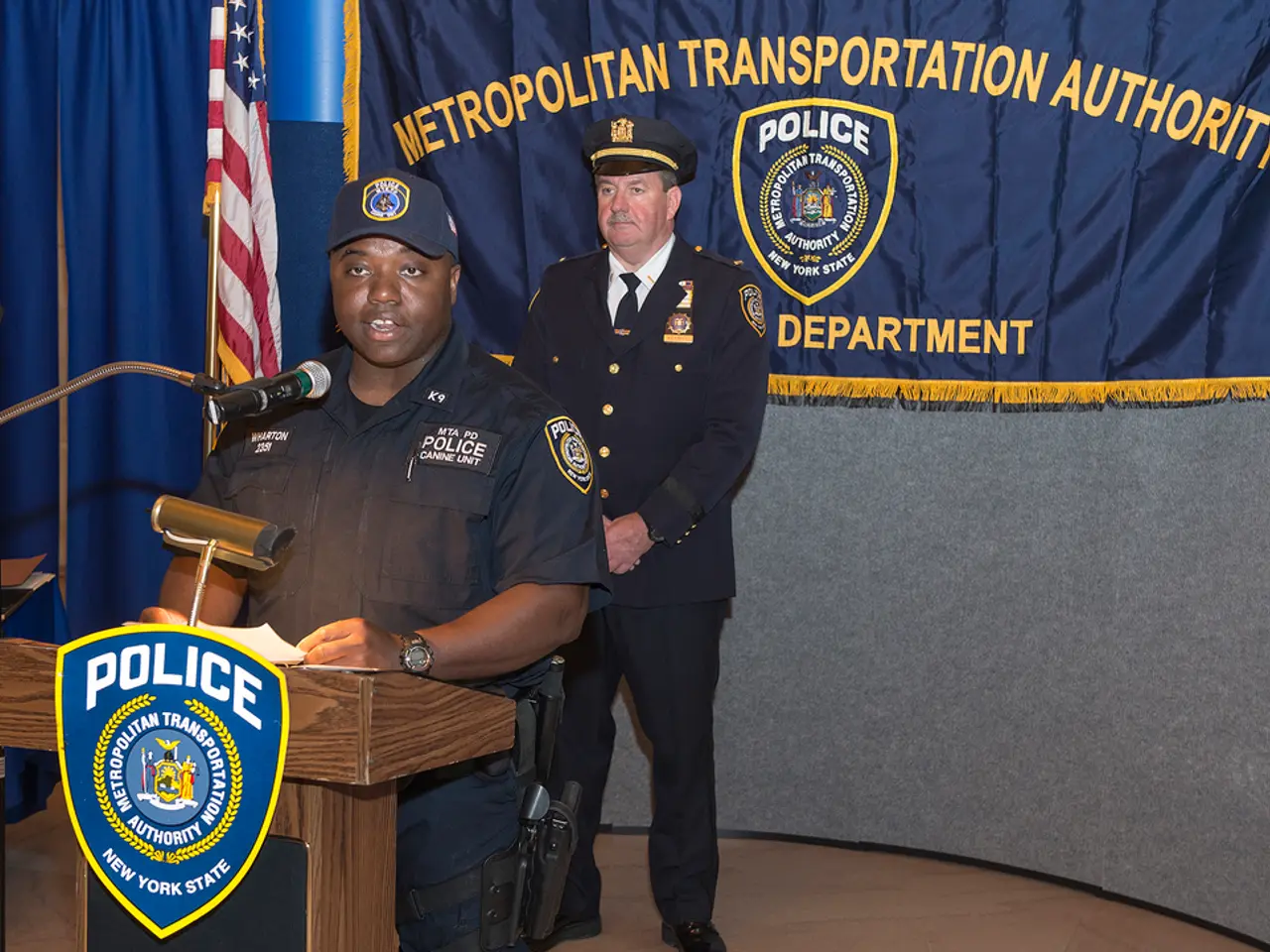Wide-scale changes in prosecutor roles may lead to massive resignations
The South Korean government has announced a plan to reform the country's prosecution service, aiming to split it into two separate agencies. This move, which has been a long-sought goal by liberal lawmakers, has sparked concerns and debates among various stakeholders.
Under the proposed plan, a crime investigation unit will be established under the Interior Ministry, while an indictment body will be placed under the Justice Ministry. This reform, if implemented, would mark a significant change in the South Korean prosecution service, which currently holds both investigative and indictment authority, a uniqueness among democracies.
However, the proposed reform has raised concerns about potential losses in investigative capabilities, particularly in key areas. If current prosecutors are reluctant to transfer to the Interior Ministry's agency, as some have expressed, this could lead to public inconvenience. Another former prosecutor has warned of possible investigation delays, citing previous cases post-launch of the Corruption Investigation Office for High-Ranking Officials as an example.
The Corruption Investigation Office, launched in 2021, has struggled with a shortage of prosecutors and has never met its staffing quota. The concerns about the investigative capabilities are further compounded by the fact that signs of departures from the South Korean prosecution service have already begun to emerge, with the number of retired prosecutors exceeding 100 starting in 2022.
Many prosecutors may view the separation of investigation and prosecution as unfamiliar and working as investigators in the new agency under a different ministry can be unsettling. A former chief prosecutor argued that prosecutors without the power to both investigate and indict "have no reason to remain in the organization."
The push for reform stems from the faults of the prosecution, as acknowledged by Acting Prosecutor General Noh Man-seok. However, he suggested that the agency should be given a one-year grace period to make its case. The ruling party aims to pass the reform bill by the end of September, with a provision granting prosecutors a one-year grace period.
The reform has been driven by the need to curb the political influence and unchecked authority of Korean prosecutors. Liberal lawmakers have repeatedly called for reforms, most recently over allegations of evidence destruction in a case tied to former President Yoon Suk Yeol by the Seoul Southern District Prosecutors' Office.
Noh Man-seok, in his capacity as acting Prosecutor General, has expressed hope that the details of the reform will be crafted "from the perspective of the people." He voiced his concern that the prosecution, defined in the Constitution, is now "at risk of being renamed by law."
The current administration is not the first to pursue such a change. Previous administrations led by President Lee Jae Myung's liberal predecessors, Moon Jae-in and the late Roh Moo-hyun, for years pushed for reform that would end prosecutors' dual powers to investigate and indict.
However, the details of who proposed to waive the one-year deadline for implementing the reforms at the public prosecutor's office remain unclear. The search results do not provide information about this crucial aspect of the reform process.
In the appointment process for judges this year, 32 out of 153 candidates were former prosecutors, more than double last year's figure of 14. This suggests that despite the concerns and debates, some former prosecutors are choosing to stay engaged in the justice system, albeit in a different capacity.
As the reform bill moves through the legislative process, it will be interesting to see how the concerns and debates shape the final form of the reform. Whether the proposed reform will indeed lead to a more accountable and transparent prosecution service remains to be seen.
Read also:
- Election monitoring body in Georgia raises doubts about impartiality, opting out of overseeing the 2025 elections
- Gathering Celebrating Cultural Variety
- Trump advocates for the withdrawal of two candidates to create a one-on-one mayoral race between him and Mamdani in New York City
- Voting location now active for citizens to cast their ballots.








